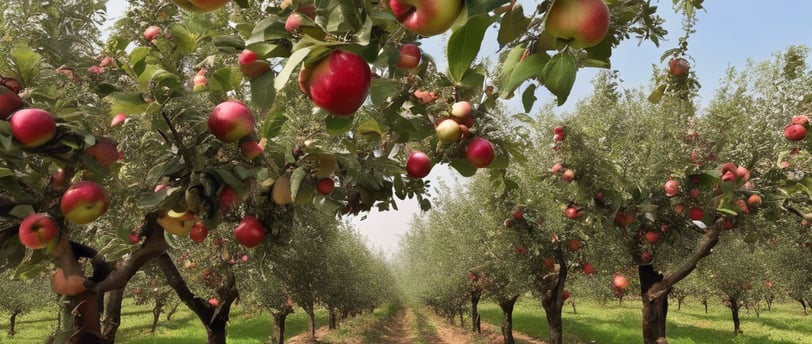The Journey of an Apple Farmer: Stories from India's Apple Orchards
Share personal stories and experiences of apple farmers from different regions of India. Highlight their challenges, successes, and the impact of apple farming on their lives.


Introduction to Apple Farming in India
The story of apple farming in India is one of resilience, dedication, and a deep connection with the land. Spread across various regions, particularly in Himachal Pradesh, Jammu and Kashmir, and Uttarakhand, India's apple orchards flourish through the hard work and perseverance of countless apple farmers. These farmers play a crucial role in India's agricultural sector, facing numerous challenges yet emerging with inspiring tales of success and community impact.
Challenges Faced by Apple Farmers
Apple farming in India comes with its unique set of challenges. Weather conditions, for instance, are unpredictable. Farmers have to be vigilant and adaptive to sudden changes that could affect the crop yield. Pests and diseases, such as apple scab and codling moth, are persistent threats, prompting farmers to invest in organic and chemical treatments to protect their orchards.
Additionally, market fluctuations and logistic issues often create financial instability. Many farmers lack direct access to larger markets, resulting in dependency on middlemen who may not provide fair prices. The remote locations of apple orchards further complicate transport and supply chain processes, making it difficult for farmers to deliver their produce promptly and in good condition.
Success Stories from the Orchards
Despite these challenges, there are numerous success stories of apple farmers who have triumphed through innovation and community support. Take, for instance, the journey of Ramesh Sharma from Himachal Pradesh, who adopted modern organic farming techniques. His transition not only improved the quality of his apples but also fetched him higher prices, allowing him to reinvest in his farm and improve his family's standard of living.
In Jammu and Kashmir, Shabir Ahmed's story stands out. Faced with the initially harsh climatic conditions and political instability, Shabir turned his small-scale orchard into a model of sustainable farming. By implementing water-saving irrigation techniques and eco-friendly pesticides, he increased his yield while minimizing environmental impact. His success inspired other local farmers to adopt similar methods, leading to collective growth and prosperity in his region.
The Impact of Apple Farming on Farmers' Lives
The long-term impact of apple farming on the lives of Indian farmers stretches beyond financial gains. It fosters a deep-rooted sense of cultural heritage and community involvement. Apple orchards are often family-run, with generations working together to cultivate the land, passing down traditional knowledge while embracing modern agricultural practices. This intergenerational cooperation strengthens family bonds and ensures the continuity of farming traditions.
Moreover, successful apple farming contributes to the economic upliftment of rural areas. With increased incomes, farmers can afford better education for their children and improved healthcare facilities, leading to overall community well-being. Apple farming thus not only sustains livelihoods but also propels social and economic development in these regions.
Conclusion
The journey of apple farmers in India's orchards is a testament to their indomitable spirit and unyielding commitment to their craft. Their stories of overcoming adversities, achieving success through innovation, and positively influencing their communities offer invaluable insights into the rural farming landscape. As apple farming continues to evolve, these farmers remain at the heart of India's agricultural prosperity, nurturing the orchards with dedication and pride.
